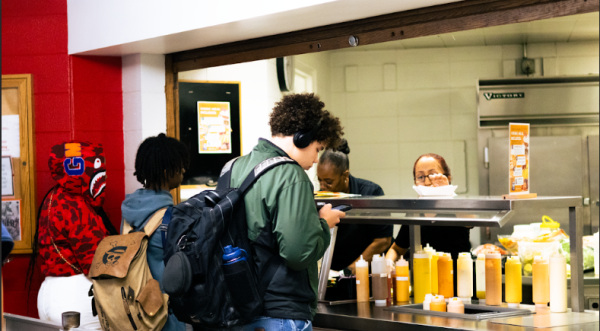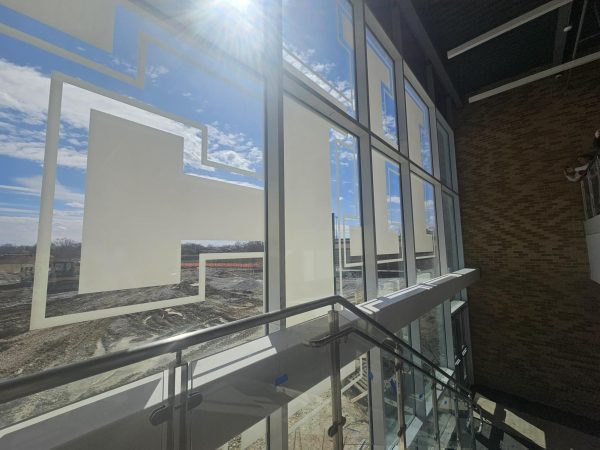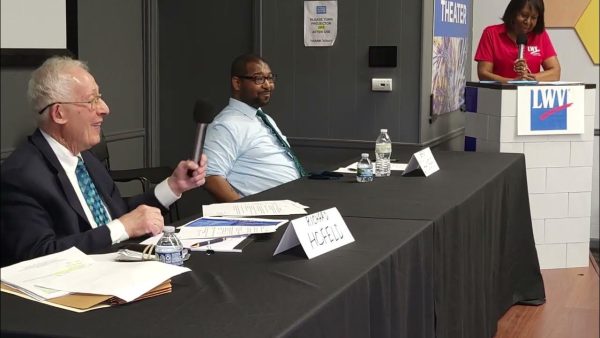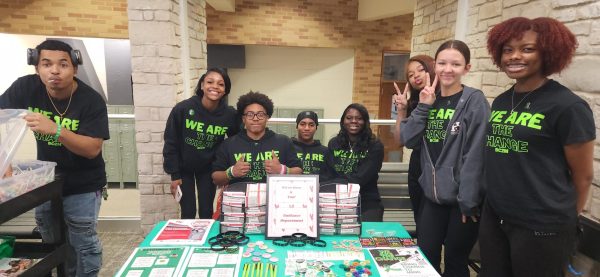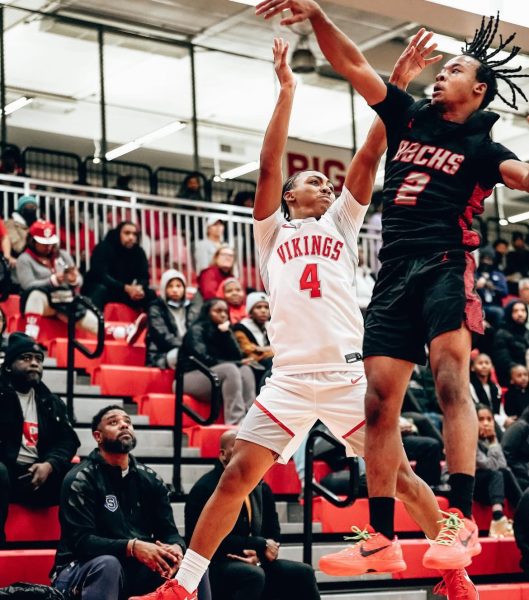Then there were eight
The IB program is one of the most prestigious programs offered here.
In its third year, however, the program includes just eight seniors. This is a dramatic decline from recent years and expectations.
“We were surprised, but talking with students, we knew they had different ideas of what they wanted their senior year to look like,” IB Diploma Coordinator Matt Knoepke said.
The IB program is short for International Baccalaureate program and it invites freshman who do extremely well on their entrance exam to take advanced courses in hopes of graduating with an IB Diploma.
The challenging program provides an internationally accepted qualification for entry into higher education and is recognized by many universities worldwide as a testament to students’ dedication to achieving higher learning.
Because the IB program is one of the most rigorous programs offered, it expects students to complete specialized classes specific to the program, including a year-long thesis paper and a senior test to measure what they learned during all four years of high school.
“I’d be lying if I said I didn’t feel like some of my high school experience is lost because of IB, but it makes for a different experience. It’s not that I didn’t have a social life, it’s just that it wasn’t as big as it could’ve been,” senior Zakiya Walker said.
A lot of work and time has to be dedicated to be successful in the program. For a lot of students, it proved to be too much to handle.
“It was just too hard. It was hurting my GPA and honestly I wish I never did it. Now as I’m applying for colleges, I still have the scars on my GPA from freshman year,” senior Jordan Davis said.
Another reason for the decline in students could be the inflexibility of scheduling. Students who were once successful in the program left as the courses became more restrictive.
“It just wasn’t the right fit for me; I wanted to be able to choose the classes I could take. I wanted to take classes that would help me with what I wanted to do in the future, and it was so strict that I couldn’t,” senior Kennedi Sidberry said.
Others felt like this was an opportunity that should not be passed up and the positives outweighed the negatives.
“I couldn’t fit choir into my schedule with my other IB classes, but I didn’t want to drop the program because I was doing so well and that would be giving up all my progress and something that I really loved. I thought it was unfair for them to make me choose,” senior Courtney Commodore said.
Because of the small number of students in the program and the specialized classes that are required, the class sizes for this group are extremely small. Small individualized classes can be beneficial, but also limiting.
“It’s interesting having only eight people maximum in a class. Usually it’s only four of us. Sometimes I would wish there was more of a variety of perspectives,” Walker said.
Teachers, however, can capitalize on extra time and utilize it to further their student’s learning environment.
“That’s not an ideal situation, but at the same time the depth at which you can carry on a conversation and the amount the student can participate is much larger than say a class of 25 students,” Knoepke said.
While the program is a challenging and rigorous academic spin to regular high school learning, the administrators realize that the program does have its issues. They are working to make it less restrictive and allow more people to continue down that academic path.
“I promise you there are conversations happening to see what can be changed with the program, but first we need to take into consideration how any change affects other schools programs,” Knoepke said.


